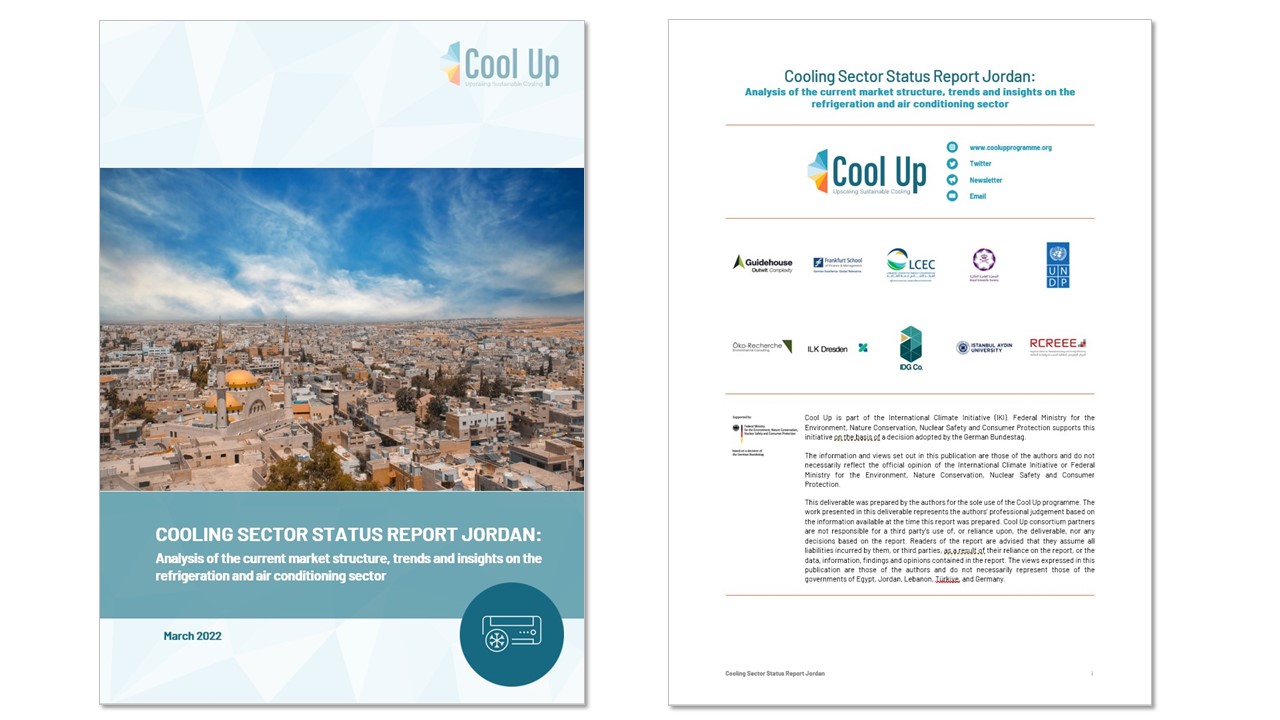Cooling Sector Status Report Jordan
Analysis of the current market structure, trends and insights on the refrigeration and air conditioning sector
A peak inside the report
Jordan faces rising energy demand due to economic and population growth. More than 60% of energy consumed in households is used for heating and cooling. This trend is expected to grow as average temperatures continue to rise. There is limited data and market studies on the current state of the cooling sector in Jordan. The Cooling Sector Status Report aims to rectify this on residential and non-residential air conditioning and commercial refrigeration. The report provides an overview of the cooling sector in Jordan by laying the foundation for understanding upscaling sustainable cooling technologies potential in the country and the use of natural refrigerants as an alternative to harmful synthetic refrigerants.
The report includes information on the following topics:
- Country overview
- Air conditioning market
- Commercial refrigeration market
- Refrigerant market
- Cooling sector insights
Cooling Sector Status Report Jordan

of energy consumed in households is used for heating and cooling
of air conditioning systems on the Jordanian market are produced locally
of refrigerants in Jordan are currently imported
The lead author organisations
This Cooling Sector Status Report was prepared by Guidehouse and its national partner the Royal Scientific Society. It is the first of its kind to provide an overview of the current state of the air conditioning and refrigeration market in Jordan. Through a targeted primary and secondary data analysis, the report addresses Jordan’s potential to develop a national natural refrigerant market that could reduce its dependency on imports.
"The market for cooling equipment is expected to grow. Therefore, introducing sustainable cooling technologies and natural refrigerants early as a direct replacement to prevent potential lock-in effects to harmful refrigerants is needed."
PublisherGuidehouse Germany GmbH |
Lead authorsSawsan Bawaresh (Royal Scientific Society) Jan Grözinger, Nesen Surmeli-Anac (Guidehouse)
Contributing authors Maha AbuMowais (Royal Scientific Society) Sven Schimschar, Eslam Mohamed Mahdy Youssef, Katja Dinges, Andrea Dertinger, Alexander Pohl (Guidehouse) Felix Heydel (Öko-Recherche) Sanjeev Tamhane, Zuhal Ürgüplü Sanal (Frankfurt School of Finance and Management) |
